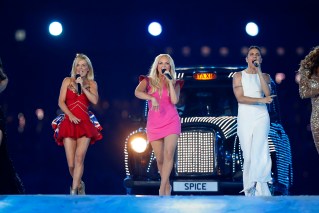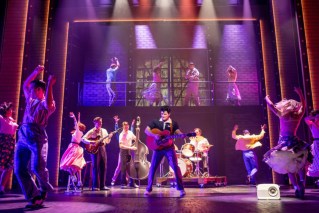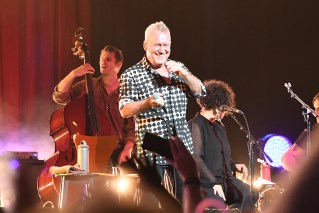A live music scene needs a live music policy
By Kate Shaw, University of Melbourne
· Melbourne Music Week rocks but don’t take the feedback for granted
The Bendigo Hotel, a live music venue in the Melbourne suburb of Collingwood, is facing closure after complaints about noise. As an online campaign mounts to stop the Bendigo being closed down, cities around Australia are exploring strategies to encourage live performance culture.
The threat to the Bendigo Hotel makes the case for well-developed live music policy – without a clearly defined regulatory context, venues are vulnerable. In Melbourne, while changes to licensing laws have made it easier for some venues to stay in business, planning laws remain an obstacle.
Live music policy around the country
Sydney recently produced a live music action plan and Melbourne City Council has set up a music strategy advisory committee.
Wollongong has a new live music taskforce and Perth is looking at establishing one too.
Victoria’s Yarra and Port Phillip councils in Victoria have live music strategies; Adelaide has produced two reports on live music; and Brisbane City Council has a number of published papers on its entertainment precinct in Fortitude Valley.
One of the final initiatives of the Rudd government was to agree to the formation of a National Live Music Office in July 2013.
Why have policies on something as organic as live music? Urban development, mainly.
Musicians need venues
The increasing densification of Australia’s capital cities is raising all sorts of questions about competing land uses. Live musicians need somewhere to play – and their audiences need somewhere to go. As arts and cultural venues are rarely the most lucrative use of land, the prospect of redevelopment – usually for apartments, luxury hotels or office blocks – is always looming.

A warning to potential residents of a Melbourne suburb that there’s a live venue nearby. Marieke Hardy/Twitter
Music venues in particular are vulnerable not just to redevelopment of the land they occupy but that of their neighbours. Cherry Bar in ACDC Lane in central Melbourne is the most recent to be threatened with costly sound-proofing works or closure as a consequence of intense residential development next door.
A license to play
Liquor licensing is another policy issue.
In 2010, the Victorian Liquor Licensing Commission linked live music with a high risk of violence. This led to stringent license conditions for live music venues that significantly increased their costs.
It was this problem that led to the temporary closure of the Tote Hotel in Collingwood in January 2010 and the subsequent Save Live Australia’s Music (SLAM) rally, during which 20,000 people poured onto the streets of Melbourne in protest.
In response, the Victorian government set up an interdepartmental live music roundtable to address these issues. A system was instituted that allowed venues to apply to have the more stringent conditions removed, enabling the Tote to reopen in June 2010.

20,000 lovers of live music in Melbourne turned out to call for changes to the laws governing live venues in 2010. peregrinari
This month, a more recent reform from the Victorian roundtable means that, from January 2014, alcohol-free all-ages live music events will be allowed in licensed premises. As almost all live music venues are licensed, this has until now prevented under-18s from going to most gigs.
The amendment is especially positive for audience development, with young people forming a solid base for the continuity of live music performance in Australia.
More reforms can be made in the licensing area: Adelaide introduced a small venues license in 2013, and live music policy is increasingly recognising that variegated and responsive liquor licensing systems will benefit all Australian cities.
Planning around live music
When it comes to live music venues, planning and building issues can be more complex: they have to respond to the different situations in different cities.
Sydney’s music scene has seen a remarkable revival since its Place of Public Entertainment (PoPE) laws were repealed in 2009. Coupled with a New South Wales state variation to the Building Code of Australia (BCA), the reform greatly reduced planning and building requirements for small venues.
While live music advocates in Sydney, Adelaide and Perth are concerned with eliminating barriers to the establishment of new venues, the Melbourne music community is more focused on maintaining what it has.
Melbourne’s live music scene is very strong and nationally and internationally renowned, and it has more small venues now than ever. The city’s population is also growing – more rapidly than any other Australian city – and these venues are under constant pressure from urban development and noise complaints.
Most states have the principle of first occupancy written into their liquor licensing legislation – which means a liquor license held by a pub won’t be revoked if a kindergarten is built next door.
None, however, has the concept in its planning system.
The “agent of change” principle takes the first occupancy idea further to require that whichever party initiates a change in conditions – a new residential building next to an existing venue, for example, which can render that venue non-compliant with sound emission levels by bringing residents closer – bears the cost of sound-proofing to maintain amenity expectations.
Keeping the scene strong
This item has been on the Victorian roundtable agenda since its inception. It is no harder to amend planning schemes than it is to amend liquor licensing regulations – but the roundtable is no closer to achieving that objective.
The quest to reduce the barriers to opening new venues in Melbourne is also before the Victorian roundtable. Just because the scene is strong doesn’t mean it is secure, and rents and compliance costs are rising rapidly.
An application to the Victorian Building Authority for a state variation to the BCA to bring it into line with NSW was recently rejected without explanation.
Part of the resistance to planning and building reform in Victoria seems to be a failure to recognise that there is a problem.
While Brisbane, Sydney, Wollongong, Adelaide and Perth have taken or are taking steps to create more opportunities for live music performance in these cities, Melbourne’s regulatory context remains static. Melbourne couldn’t lose its place as Australia’s “cultural capital”, could it?
Complacency can do that.
Kate Shaw does not work for, consult to, own shares in or receive funding from any company or organisation that would benefit from this article, and has no relevant affiliations.
![]()
This article was originally published at The Conversation.
Read the original article.








